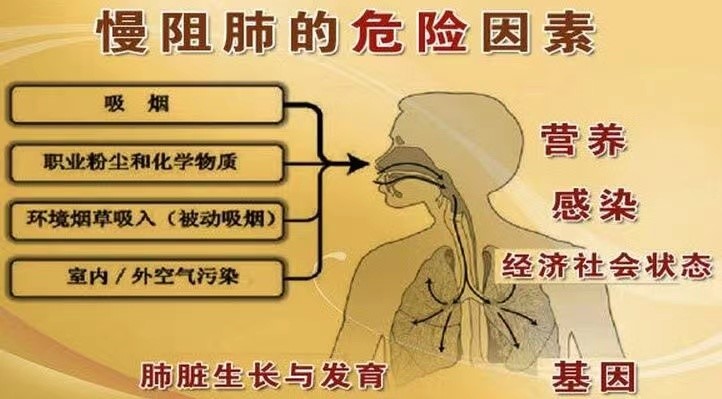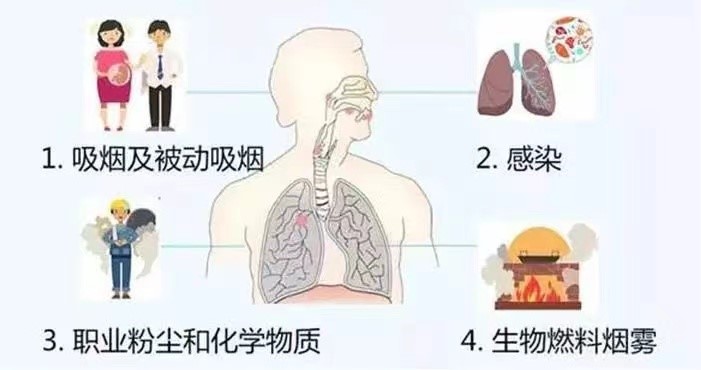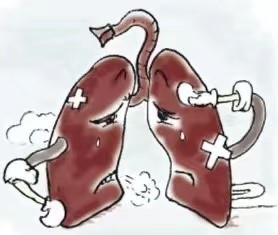On the significance of "new liberal arts" from the perspective of traditional culture
In August 2018, half a month before the National Education Conference, the Central Committee of the Communist Party of China put forward the concept of "new liberal arts" in the document that "higher education should strive to develop new engineering, new medicine, new agricultural science and new liberal arts". In 2019, the Ministry of Education and the Ministry of Science and Technology and other 13 departments jointly launched the "Six Excellence-Top-notch" plan 2.0. As one of the "Four Innovations" construction, "New Liberal Arts" entered the formal implementation stage from concept. "New liberal arts" has also attracted extensive attention from academic circles and other social circles, and has become a hot topic in recent years.
Some scholars will think that the concept of "new liberal arts" originated from the United States. The landmark event is that Hiram College in the United States comprehensively revised the training program in 2017, reorganized 29 majors, and integrated new technologies into traditional courses such as philosophy, literature and language to provide students with comprehensive interdisciplinary learning. The reason behind this change lies in the decline of liberal arts under the situation of the rise of applied disciplines, which leads to the survival crisis of liberal arts teachers or colleges.
However, it is obvious that such a concept of new liberal arts obviously cannot cover the connotation of "new liberal arts" proposed by contemporary China. As we all know, our government has repeatedly pointed out that mankind is in a "great change that has never happened in a hundred years." The magnitude of this change covers all aspects of human life. And education is one of the core points in this great change. In a sense, only when education adapts, adapts and perfectly responds to this great change can human society eliminate the uncertainty in the change, realize the phoenix nirvana of human civilization, and go up a step.
This "great change in a hundred years" is simply that the relationship between man and nature and the relationship between man and society has undergone tremendous changes. Before industrial civilization, human beings were an appendage of nature, or at least, human initiative could not cause fatal harm to nature. In the hundreds of years after the industrial revolution, the intervention of science and technology has made human beings increasingly reactive to nature. Today, the survival of human beings and the survival of nature even show a trend of changing. It is estimated that the pollution caused by technological changes since World War II accounts for 80% of all global pollution at present. Biologists have issued a warning that shocked the whole world: 5000 species of animals will be extinct in the world in a short time. But at the same time, it almost made the same sound: in the first half of this century, one mammal was extinct every five years, and in the second half of this century, it has accelerated to every two years.one kindExtinction These ecological changes are the result of modernization in recent centuries. Modernization not only destroys the sustainable natural economy of human beings, but also breaks all kinds of restrained values, lifestyles and cultural traditions, making all kinds of development completely out of control. The subversive influence on human beings and the whole biosphere mainly comes from the past 500 years, that is, the 500 years when western values expanded to the world and gained world dominance. Compared with nearly 6,000 years of human civilization, 500 years is only 8% of the time, but it is the population explosion and environmental damage caused by this short period of 500 years that have broken the balance between man and nature, changed the circulation mode of biosphere and the natural process of human beings, and all this is contrary to the overall experience of human beings.
This is undoubtedly sad, ridiculous and must be changed.
At the same time, the contradiction between people and society has entered the deep water period. The contradiction between people and society is essentially the contradiction between people. In the past period of human history, people exploited people and even enslaved people in many areas, which was a long-term historical process. The only difference between them is the evolution of exploitation forms: from cruel slavery to tender capitalism. Marxism once predicted the demise of capitalism, which is undoubtedly a great judgment. However, as mentioned earlier, after the industrial revolution, the rapid improvement of productivity eased the contradiction between the exploiters and the exploited by "making the cake bigger" and gradually increasing everyone’s absolute gain. But the essence of this relief is to treat the symptoms rather than the root cause. The essence of this relief is that the development of the exploited person’s mental level lags behind that of the exploiters. In the era of knowledge monopoly, this difference in mental level development can be obtained stably through system design. But in the post-modern society and the era of knowledge economy, it is almost impossible to monopolize knowledge. The difference between the mental level of the exploiters and the exploited is being leveled at an unprecedented speed. This change will inevitably have a fundamental impact on the social system of exploitation pursued by these regions for a long time. In today’s society, the profound roots behind trade frictions, regional conflicts and ethnic disputes are all the same. In particular, it is worth mentioning that the above-mentioned crisis between man and nature has made the usual expedient measure of "making a big cake" increasingly ineffective, which makes this impact inevitable.When contradictory parties cannot make peace in a peaceful way, the consequences of this impact will be fatal to all mankind.
In a word, it is unprecedented and urgent for human beings to resolve the above two fundamental crises through their own evolution. Education is an important way to get through the crisis.
However, the western-style "subject education" that has been formed all over the world since the industrial revolution cannot undertake such a task at all. This is because the traditional western-style subject education belongs to atomism in world view and mechanical reductionism in methodology. The advantage of this kind of education is that it can produce "experts" in specific fields in batches in the shortest time. In essence, this kind of cultivation mode is matched with the large-scale industrial production of machines in the early stage of industrial civilization. This is because in the early stage of human industrial civilization, the problems faced by human society are often relatively simple and linear. However, the shortcomings of this "divided education" are also obvious. The more in-depth the subject education, the more learners will fall into the so-called "knowing but seeing obstacles" of China Buddhists, that is, the accumulation of knowledge and the expansion of the "ignorance" boundary show a positive correlation. Zhi Nuo, a western philosopher, once made a vivid analogy: he drew a circle, inside which is the knowledge he has mastered, and outside which is the boundless unknown world. The more knowledge, the bigger the circle, and the longer the circumference, so that the contact surface between its edge and the outside world is also larger, so the unknown part is of course more.
At the same time, mankind has entered the post-industrial era, and the problems faced by mankind are increasingly complex. Interstellar travel, ecological sustainable development and even human genome, etc., from macro to meso to micro, are all nonlinear and complex issues. These complex problems we face urgently require us to integrate the past cognition of human beings. This integration is not a simple addition or a simple combination, but a holistic and organic perspective to examine any seemingly independent problem. Only in this way can we prevent the "butterfly effect" in the development of human civilization, so that the long embankment of human civilization will not end up being "destroyed by the ant nest".
At this critical juncture, education must bear such a task. But the question is, what kind of education can carry such a great task?
Such education must be based on a holistic world view. Because only by establishing a world outlook based on holism can we get out of the situation of "looking at the mountain side as a peak, and the distance is different" in the past, and change into the pattern of "meeting the extreme and the other mountains all appear dwarfs under the sky."; Such education must be based on the methodology of "harmony between man and nature". Because only by "harmony between man and nature" can we have an organic and sensitive comprehensive sensitivity between man and nature, between man and society, and between problems. This sensitivity will enable us to maintain the coordination between the local and the whole when dealing with any problem; This sensitivity allows us to find the breakthrough point of "opening our eyes to the outside world" in balancing the complicated relationship.
This is the "stratified education" bred by Chinese civilization for thousands of years. The so-called "hierarchical education" is to divide human cognitive activities into three relative levels: Tao, image and device. The cognition based on "qi" is similar to the current sub-discipline education, which explores "the principle of one thing and one thing". The disadvantage of this kind of education is that the cognition of regularity is limited to a specific problem or field. The advantage of this kind of education is that it does not require high talent and understanding of scholars. This was a craftsman-level study and practice in ancient China. Image-based cognition is more obvious than the former, and it explores "the theory of a class of problems", that is, complicated specific problems may belong to the same big class, and image-based education is to explore what the common laws behind this big class of problems are. Undoubtedly, the talents trained by such education will have wider applicability; The cognition based on Tao is the study and practice of exploring the common law behind everything. This level of learning requires extremely high comprehensive quality of scholars, but the talents trained by this kind of education will undoubtedly have overall awareness, peak perspective and strong practical ability. And such talented people are undoubtedly the best solution to the overall problems we are facing.
In other words, the new liberal arts is to upgrade the past flat "subject education" to a three-dimensional "layered education", realize the full use of talents in the true sense, and integrate human wisdom into an organic whole, thus confronting and solving our common crisis.
We have gone through the course of "making foreign things serve China" for more than 100 years from saving the nation from extinction and learning from the west in the late Qing Dynasty. Now, we should learn the wisdom precipitated by thousands of years of ancient civilization, let the deep-rooted Chinese civilization trees blossom new flowers, and "make the past serve the present" to solve the common problems faced by the whole mankind.
What is the new liberal arts? There is a saying in the predecessors: "Hard and soft rub against each other, which is called astronomy; Civilization is called humanity. It is related to astronomy to observe the changes of time, and it is related to the fact that humanity has turned into the world. " At this time of great change that has never happened in a hundred years, we need to "move against the Tao." From the path of "human culture" of the sages, from the device to the Tao, back to the peak perspective of human cognition, from the holistic level to explore the fundamental solutions to many problems. This is the intention of new liberal arts and even new engineering, new agricultural science and new medical science.









